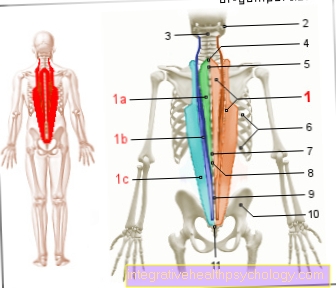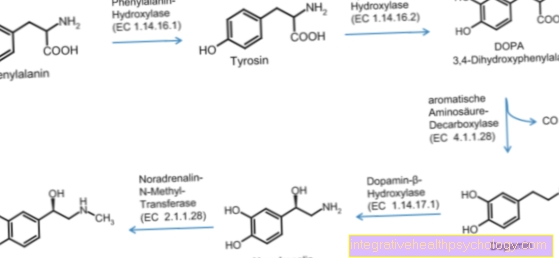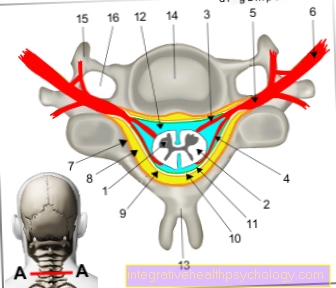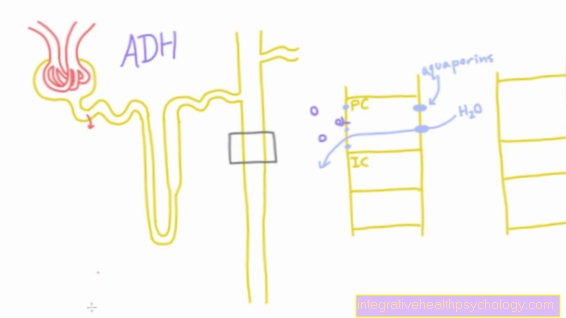Effects of antacids
General
An antacid (Plural: Antacida) is a drug that can be used in medicine to neutralize the acidic gastrointestinal environment.
The active ingredients used as antacids are mainly salts of weak acids or weak bases. What all antacids have in common is that they act as a buffer on gastric juice and can thus neutralize it. In this way, through the use of antacids, it is possible to help relieve heartburn, inflammation of the stomach lining and pain in the upper digestive tract.
The main number of antacids include:
- Magnesium,
- Aluminum or
- Calcium-containing compounds.
Furthermore, especially combination preparations made from aluminum and magnesium hydroxide have recently been widely used in the treatment of chronic heartburn. The combination of two different active ingredients offers the advantage that the quick onset of action of one can be combined with the long duration of action of the other. The overall effect of the antacid can be increased many times over in this way. In addition, the combination of aluminum and magnesium hydroxide proved to be sensible, as the simultaneous intake of both active ingredients could significantly reduce the occurrence of side effects.
In this context, extensive studies have shown, for example, that patients who were treated with combination antacids for a longer period of time suffered from constipation less frequently on average.
Symptomatic effect
Although antacids are a proven one protective Influence on the stomach and the lower part of the esophagus (Esophagus) and prevent acid damage by neutralizing gastric acid, this group of drugs is one of the pure symptomatic acting drugs.
A curative The (i.e. healing) effect of the antacids has not yet been proven. While taking Antacids various adverse drug effects (side effects) can occur.
In connection with the use of antacids described it can mainly cause changes in the Stool consistency, Diarrhea and Constipation come.
Furthermore, antacids have an influence on Kidney function. Because of this, some patients could shift the Electrolyte ratios to be established. When taking antacids, it must also be noted that the absorption and effect of other drugs can be drastically reduced in some cases.
Mode of action
The effect of the Antacids This is particularly evident in the neutralization of the acidic stomach environment. Excess stomach acid is buffered through the use of the weak bases (or salts) contained in the various antacids. This means that the smallest components of the antacid active substance enter into a chemical bond with the gastric acid and thus permanently "inactivate“.
The Stomach acid therefore loses its acidic character and can damage the irritated mucous membranes of the esophagus or des Stomach do no more harm.
In addition, some active ingredients are able to provide a protective effect Movie on the Mucous membrane the esophagus and stomach. Generally, the antacids are already starting to work few Minutes after ingestion and lasts up to four hours.
In addition to the duration and speed of action of the antacids, the so-called Buffer capacity (or neutralization capacity) of the respective active ingredient play a significant role. The term buffer capacity describes nothing more than the amount of potency an antacid can produce. Active ingredients with a high Neutralization capacity have a powerful effect, they can bind and neutralize a large number of acidic valences.





























